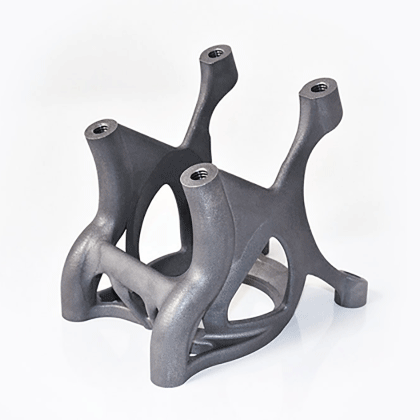Blog Information
- Posted By : Lobendahn Yazzie
- Posted On : Apr 25, 2024
- Views : 422
- Category : Technology
- Description : Exploring the Advantages of DMLS Printing Service in the Manufacturing Industry
Overview
- dmls printing service
In today's rapidly evolving manufacturing industry, the utilization of cutting-edge technologies has become imperative for businesses to stay competitive. One such technology that has revolutionized the manufacturing landscape is Direct Metal Laser Sintering (DMLS) printing service. This innovative additive manufacturing process offers a myriad of advantages that are reshaping the way products are designed and produced.

The Precision of DMLS Printing
One of the key advantages of DMLS printing service is the exceptional precision it offers in creating intricate and complex geometries. By using high-powered lasers to selectively fuse metal powder particles, DMLS can achieve incredibly fine details and tight tolerances that were previously unattainable through traditional manufacturing methods. This level of precision opens up new possibilities for the design and production of components across various industries, from aerospace to medical devices.
Material Flexibility and Customization
Another significant benefit of DMLS printing service is the flexibility it provides in terms of material choices and customization options. With DMLS, manufacturers can work with a wide range of metal powders, including stainless steel, titanium, aluminum, and nickel alloys, allowing for the production of parts with diverse mechanical properties and characteristics. Furthermore, DMLS enables the creation of highly customized and complex geometries that would be impractical or impossible to achieve using traditional manufacturing techniques.
Time and Cost Efficiency
In addition to its precision and material flexibility, DMLS printing service offers notable advantages in terms of time and cost efficiency. The additive nature of DMLS allows for the consolidation of multiple components into a single, complex part, reducing the need for assembly and minimizing material waste. Moreover, the ability to rapidly prototype and iterate designs with DMLS accelerates the product development cycle, ultimately leading to shorter lead times and lower production costs.
Complexity without Compromise
One of the most compelling advantages of DMLS printing service is its ability to produce complex geometries and internal structures without compromising on strength or performance. Traditional manufacturing methods often struggle to create intricate designs or hollow structures due to limitations in tooling and machining. DMLS, on the other hand, excels in fabricating parts with internal channels, lattice structures, and other complex features, unlocking new opportunities for lightweighting and optimization in engineering applications.
In conclusion, the advantages of dmls printing service in the manufacturing industry are vast and transformative. From its unparalleled precision and material flexibility to its time and cost efficiency, DMLS is reshaping the way products are designed, prototyped, and manufactured. As businesses continue to embrace additive manufacturing technologies, the impact of DMLS on the industry will only continue to grow, driving innovation and pushing the boundaries of what is possible in product development and production.
References
